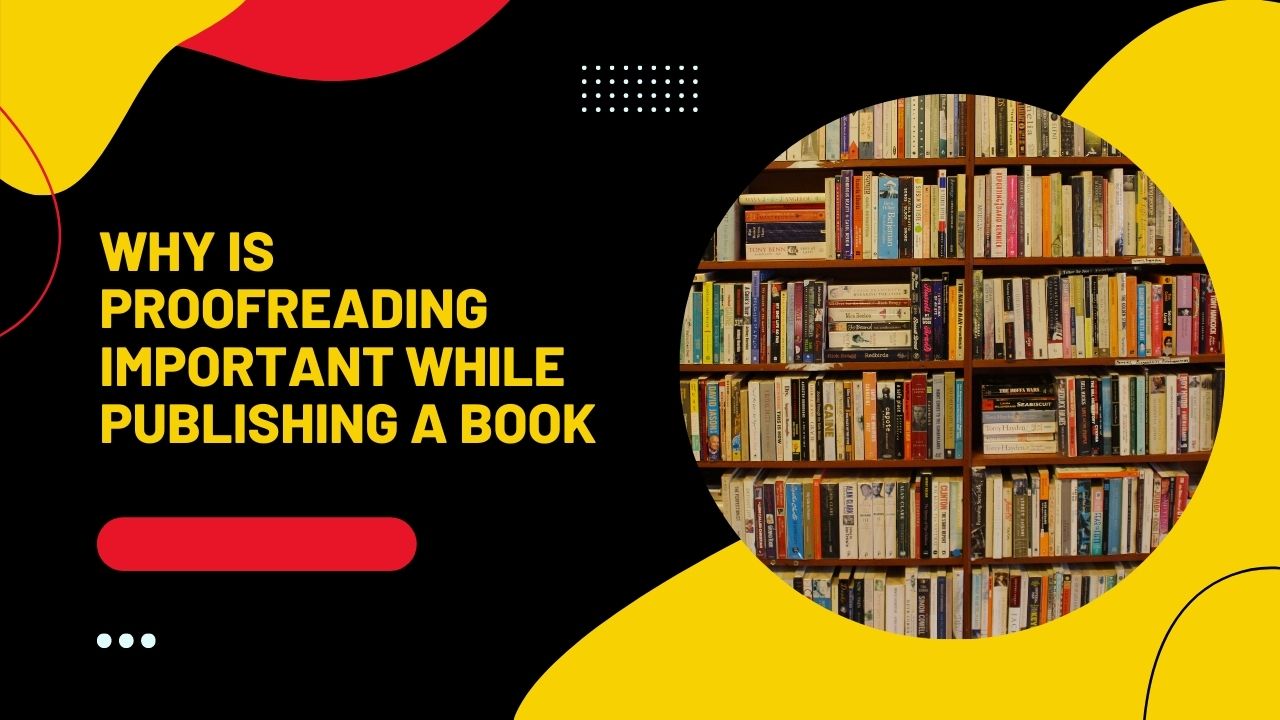Are you considering putting your book out there? Do you feel as if your writing is lacking something? Here’s how you can benefit from proofreading.
Proofreading is essential for all types of documents, including essays, manuscripts, novels, blogs, CVs, and job applications. Spelling errors, grammatical errors, and typos can all be detrimental to your work.
It’s very easy to make these errors, and even after going over the content several times and making adjustments and modifications, there will always be a few faults that you missed. This is when proofreading comes in handy and helps you avoid having your work rejected.
As a result, you may seek professional assistance. It’s not uncommon for writing assistance firms to proofread your work. It might be any form of writing, including math homework assistance, essays, or reports. You may rest assured that your work will be flawlessly polished.
Another advantage of expert assistance is that it refreshes your writing. Because you are familiar with your content, you may miss a few typos even if you are paying close attention. Even the tiniest faults will be discovered with a new eye.
Finally, the decision is yours to make. Manual, efficient proofreading can be accomplished using a variety of procedures and tricks.
You can also use services like Transcriberry to transcribe your audio and video to text to speed up your work process and give your articles a fresh touch.
So, if you’re a writer looking to publish your work, here’s how proofreading can help you make it a masterpiece.
What is Proofreading?
Before submitting a piece of work for publication, the writer must proofread it. It is essential not only for verifying spelling and punctuation but also for ensuring that the writer’s ideas and messages are properly transmitted to the audience.
If your writing fails to explain what you’re attempting to say, you’ll face backlash and unfavorable feedback from your target audience. Such writing may turn off your audience. Proofreading is essential to avoid such an unpleasant circumstance.
Why is it Important?
Whether for professional or academic goals, proofreading aids in the production of high-quality work. When done correctly, clearly, and thoroughly, proofreading can be the difference between writing something that delivers what it promises and creating something that is a complete disaster. there are many publishers that are offering book proofreading services you can choose who fits better.
Not only that, but it might mean the difference between your work being accepted or rejected by a prestigious journal or publishing house. Before the final version is completed and delivered for submission, no writer is capable of generating a masterpiece without modifying, pondering, and reviewing their text.
This is why proofreading is really important. It can help you enhance your writing and ensure that your message is clearly communicated to your audience.
What’s the difference between proofreading and editing?
Many people confuse proofreading and editing, although they are not the same. There are numerous variations between these two methods.
While proofreading systematically works with the surface level, editing dives deeper into the material and requires a comprehensive comprehension. Proofreading can help you avoid mistakes in spelling, punctuation, and sentence structure. However, editing focuses on reorganizing paragraph structures, clarifying concepts, improving the overall quality of your writing, and more effectively communicating your point. Editing is primarily concerned with your text’s content.
Proofreading’s main purpose is to get your writing ready for submission or printing. Editing, on the other hand, removes inconsistencies, and inaccuracies, and refines or opposes ideas.
Proofreading will help you improve your writing skills, and editing will help you become a more engaging writer. You may also get assistance from expert book publishing Services to make your process easier.
Important Proofreading Tips & Tricks
We are all aware that practice makes a guy perfect. You must practice becoming good at something. Proofreading is the same way.
In a single day, an experienced proofreader can proof 10,000 to 15,000 words. This is particularly impressive given that proofreading necessitates meticulous attention to detail.
Both proofreading and editing need the use of reading and writing techniques, which cannot be learned quickly. Here are some suggestions to keep you on the right track:
Reading Out Loud
Have you ever heard a sentence that didn’t make sense? Try reading the words out loud the next time you do it. This is a fantastic suggestion. You’ll be able to notice faults and incorrect grammar more quickly if you read the sentence aloud.
Highlighting Errors
The features that come with a word document file are one of the nicest aspects of using it. There’s a feature that highlights common mistakes, for example.
This allows you to take a break, return to it later, and work on other portions at the same time. Make sure you’re getting the most out of this cool feature!
Remember to Take a Break
Spending hours looking at a computer screen is never a smart idea. Sitting and reading many words all day is not only psychologically taxing but also impairs your clarity and focus.
It’s crucial to remember to take pauses in between. Whatever your preferred method of taking a break is, the goal is to get your attention away from the computer for a time.
Developing a Plan
Having a strategy is always a good idea. Proofreading necessitates a methodical approach. Instead of feeling overwhelmed by the sheer number of pages to read, it’s time to be strategic.
You must be meticulous and methodical. To see if it helps, divide the manuscript into sections. If that doesn’t appeal to you, try another approach, such as taking it one line at a time.
Printing out the manuscript and working on it on paper is another option. This also allows you to avoid gazing at a screen for long periods of time. So it’s a win-win situation!
Feedback is essential.
Always solicit input. The feedback and critiques of your peers can teach you a lot about your work. It’s simple to miss a detail or make a mistake. Having someone else read it and give you feedback will help you see your work in a new light.
Take Benefit of a Proofreading Software Program
There are numerous proofreading software packages available. Anyone can utilize it, from students to authors. Elsevier, Grammarly, and Creative Savant, for example, provide automated proofreading and editing services to help you improve your writing.
These programs will alert you if you use the incorrect phrase or word too frequently. It will present you with options as well as make recommendations. Although proofreading software is not always free, it would be a shame not to use them!
Avoid being distracted.
Finally, proofreading should take place in a calm setting. It might be really advantageous to have a comfy writing space.
Being a proofreader is difficult labor. A proofreader will have to evaluate sentences after sentences for flaws. If you’re working in a noisy area, it’s easy to become sidetracked, make a mistake, or even miss a line.
Last Thoughts
Finally, we’d want to emphasize the importance of proofreading in helping you develop as a writer. You’ll be able to learn about your writing style, refine it, and mold it into your own.
Process editing should usually come first in a writing project, but both are essential when intending to publish a book.
So, remember to proofread your book before sending it in for publishing, and don’t forget to tell us how you proofread and what your focus techniques are!


